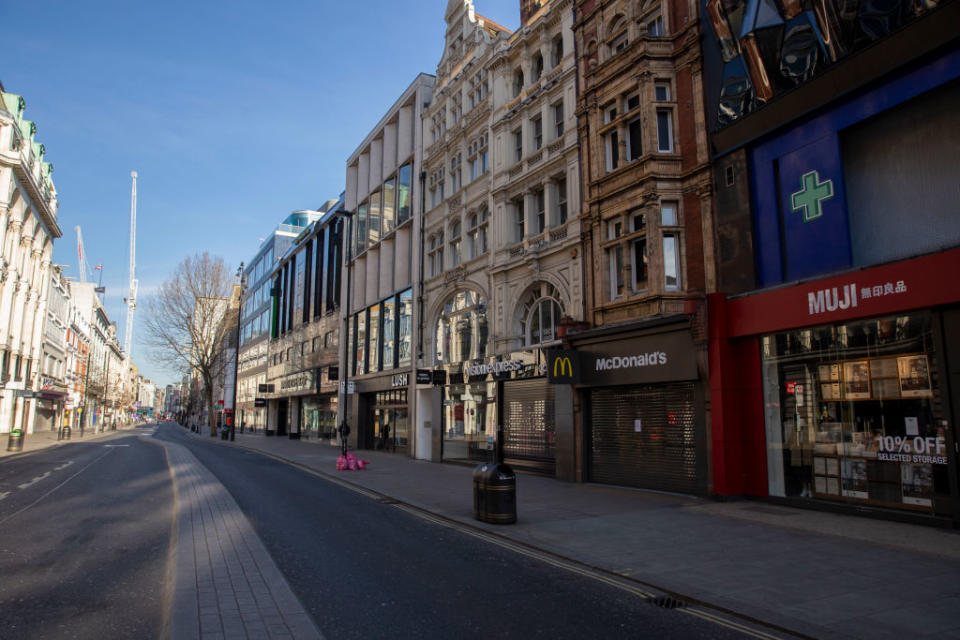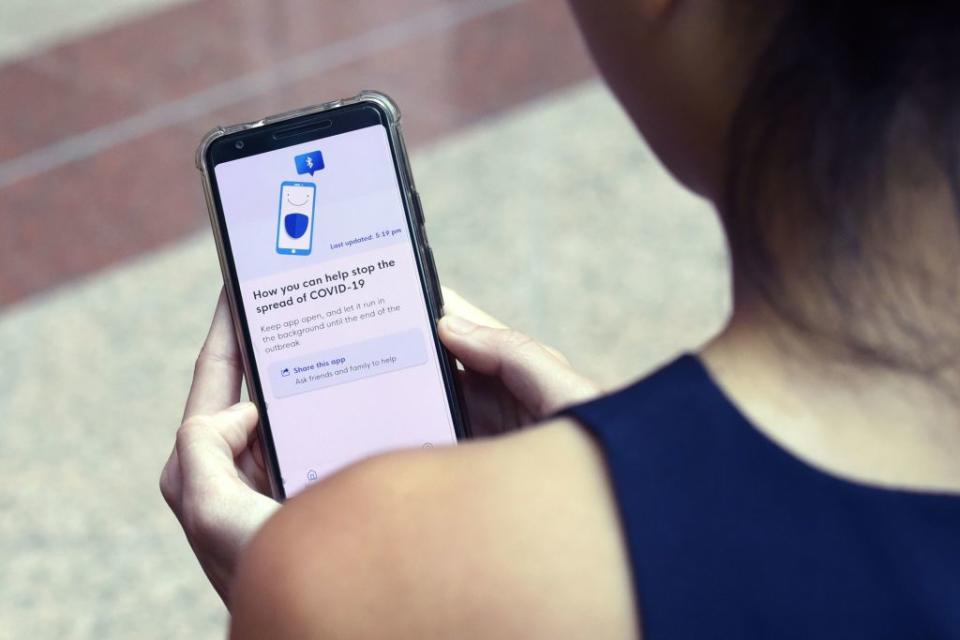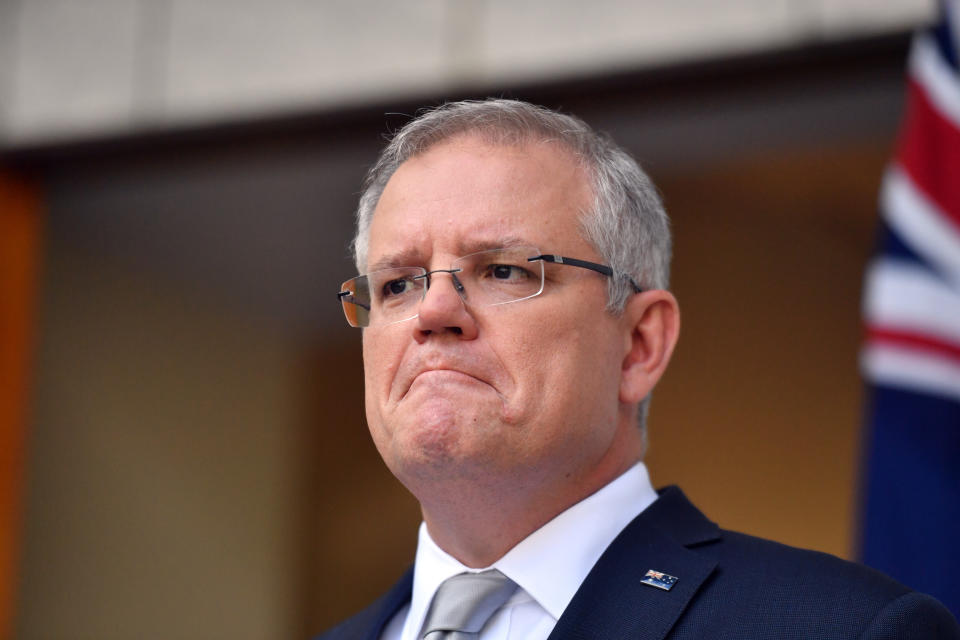'There will be a stage three': What the next lockdown measures could look like
The Australian government’s national cabinet met again on Wednesday night as the nation grapples with a rising wave of coronavirus cases.
On Sunday night Mr Morrison announced the closure of pubs, clubs, cinemas, entertainment venues as well as indoor dining for restaurants and cafes. He referred to it as “phase one” but couldn’t say what phase two would involve, or if it would even be necessary.
But after tighter controls were announced Tuesday night, including limiting gatherings of more than 10 people, state leaders have flagged the likelihood of ‘stage three’ lockdowns in the near future. What that involves has not been detailed yet, but it would likely entail retail businesses and office buildings being forced to shut and a UK-style mandate for Australians to stay in their homes.
“It was called stage one for a reason, there would be a stage two, that was agreed to last night,” Victorian Premier Daniel Andrews said on Wednesday morning.
“No one makes these decisions easily but stage two was very important. I'm being upfront with people – there will be a stage three.
“That is not today and now is not the time for us to move to a whole range of other measures and I'm not going to speculate on those measures,” he said.
What could phase three look like?
In Europe and Asia, as well as parts of the United States, countries have been forced into much stricter lockdowns than Australia with residents largely forced to contain themselves to the home. In the UK, for example, residents are only allowed to leave for grocery shopping, medical visits and one hour of exercise a day. Both the UK and Germany have also banned public gatherings of more than two people.
Italy, the worst hit country so far in terms of officially reported deaths, also remains in highly restrictive lockdown including school closures. Residents have been confined to their homes while only essential businesses such as supermarkets and pharmacies have been allowed to stay open.

New York has seen cases skyrockets in recent days but has introduced a slightly laxer lockdown than Italy or the UK. All non essential workers have been ordered to work from home and while solitary walks and outdoor exercise is permitted, all team sports have been banned. New York’s public schools have been closed and the city’s mayor said they could remain closed for the rest of the year.
The Australian government has been insistent that schools remain open, with early modelling released today by the University of Sydney suggesting school closures have little effect on controlling the outbreak. While states will differ, it appears likely schools would stay at least partially open in a so-called stage three lockdown.
Governments tracking citizens via their phones
The exponential spread of the virus means cases rise steeply, often doubling every few days when left unchecked. Once strict social distancing measures are adhered to, the same rate of change can happen in reverse, known as exponential decay.
Once achieved, the crisis becomes more manageable for the healthcare sector and it soon becomes possible again to track cases and curb the continued spread of the virus, provided the borders are closed. Many countries have turned to technology to help do this.
A number of countries including South Korea, Taiwan and Israel have either implemented, or examined ways to track people through their mobile phones to enforce lockdown measures and trace potential coronavirus patients.
Singapore has rolled out a government app called TraceTogether that leverages Bluetooth technology to track its citizens. South Korea’s government did something similar, launching an app that uses GPS tracking to make sure people don’t break quarantine.
In Israel, the government has allowed its highly sophisticated security agencies to tap into a previously undisclosed trove of mobile phone data to retrace the movements of people who have contracted the coronavirus, The New York Times reported.

Tech giants like Google and Facebook already do extensive location tracking of users’ devices, and the US is reportedly in talks with the companies to use anonymised location data to track the spread of the disease.
Meanwhile the UK's top scientist Sir Patrick Vallance has endorsed the use of contact tracing via peoples’ mobile devices but said it was likely too late for the country.
Despite concerns from privacy advocates in Australia, in a widely shared article on the weekend, the CEO of the Grattan Institute John Daley was among those to endorse the idea on the domestic front.
“We don’t yet have China’s ability to track and trace. But in a national emergency, setting up systems to track people and their contacts using mobile data might be worth both the money and the invasion of privacy,” he wrote.
When pressed on its overall strategy, the Prime Minister’s office says it is simply focused on slowing the spread of the virus.
Morrison labels total shutdown ‘reckless’
Last week a team of academics urged the government to introduce a sharp and hard lockdown to get on top of the virus.
In a letter to the federal health minister – published by the Nine Newspapers on Tuesday – the researchers urged the government to “go now, go hard, go smart”.
The collection of specialists said there was evidence the strategy would provide a speedier return to economic normality.
“While the stronger measures recommended increase the upfront cost of action, there is evidence that it increases the likelihood of a speedier move to a national social and economic recovery phase,” they wrote.

While stage three restrictions could be introduced independently by the worst hit states of New South Wales and Victoria, the prime minister has repeatedly said such considerations need to be weighed against the economic welfare of citizens.
On Wednesday, Mr Morrison said he didn’t want to take away the livelihoods of Australians before it was necessary.
“I don't understand why you would cause that harm to a business and their workers and livelihoods for the sake of message convenience. I think that that would be quite reckless,” he said Wednesday.
“What we're seeking to do is put in place measures on a scalable basis ... We are not going to do things to a business or someone's job and livelihood where, at this stage, that may not be necessary.”
Do you have a story tip? Email: newsroomau@yahoonews.com.
You can also follow us on Facebook, Instagram and Twitter and download the Yahoo News app from the App Store or Google Play.





